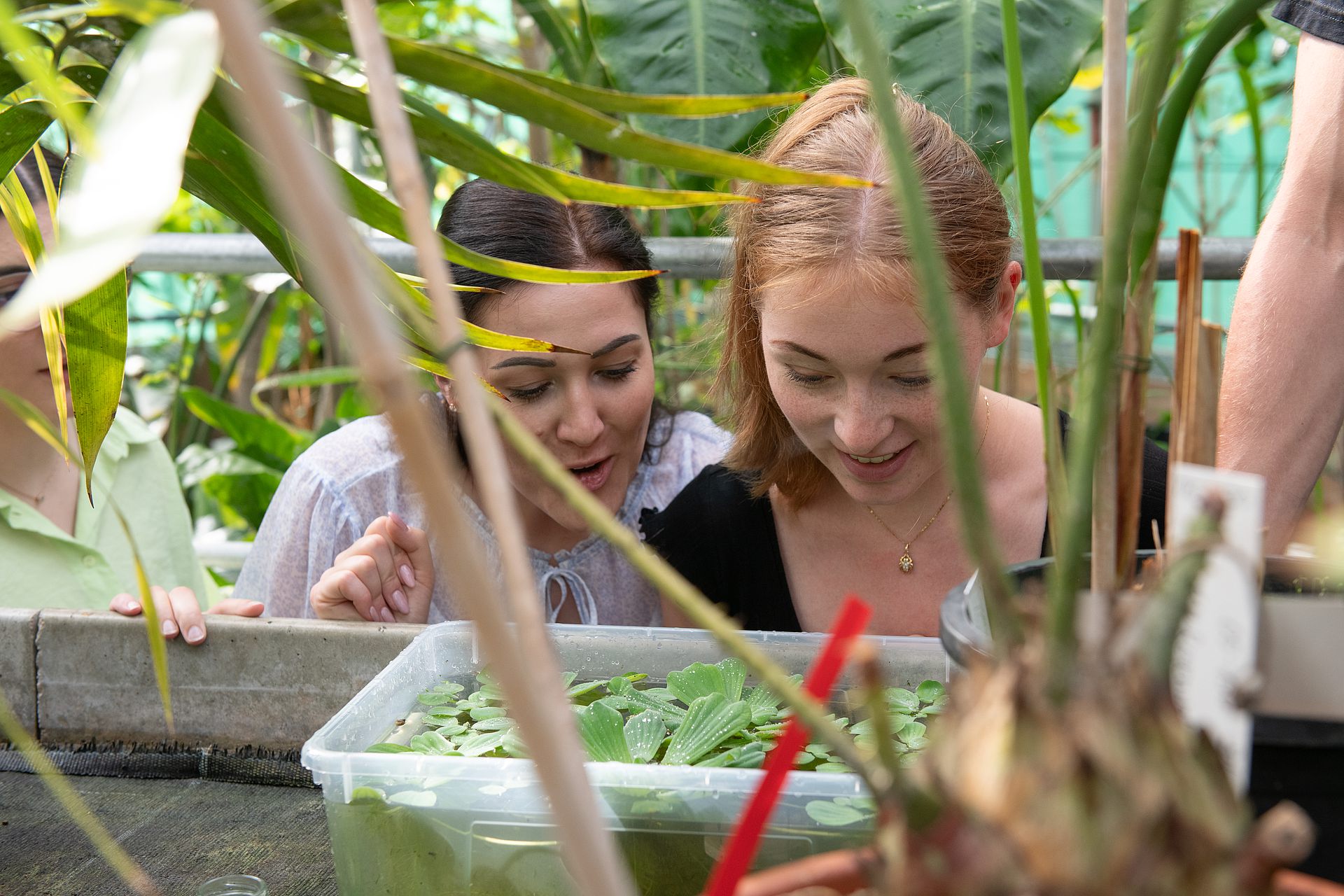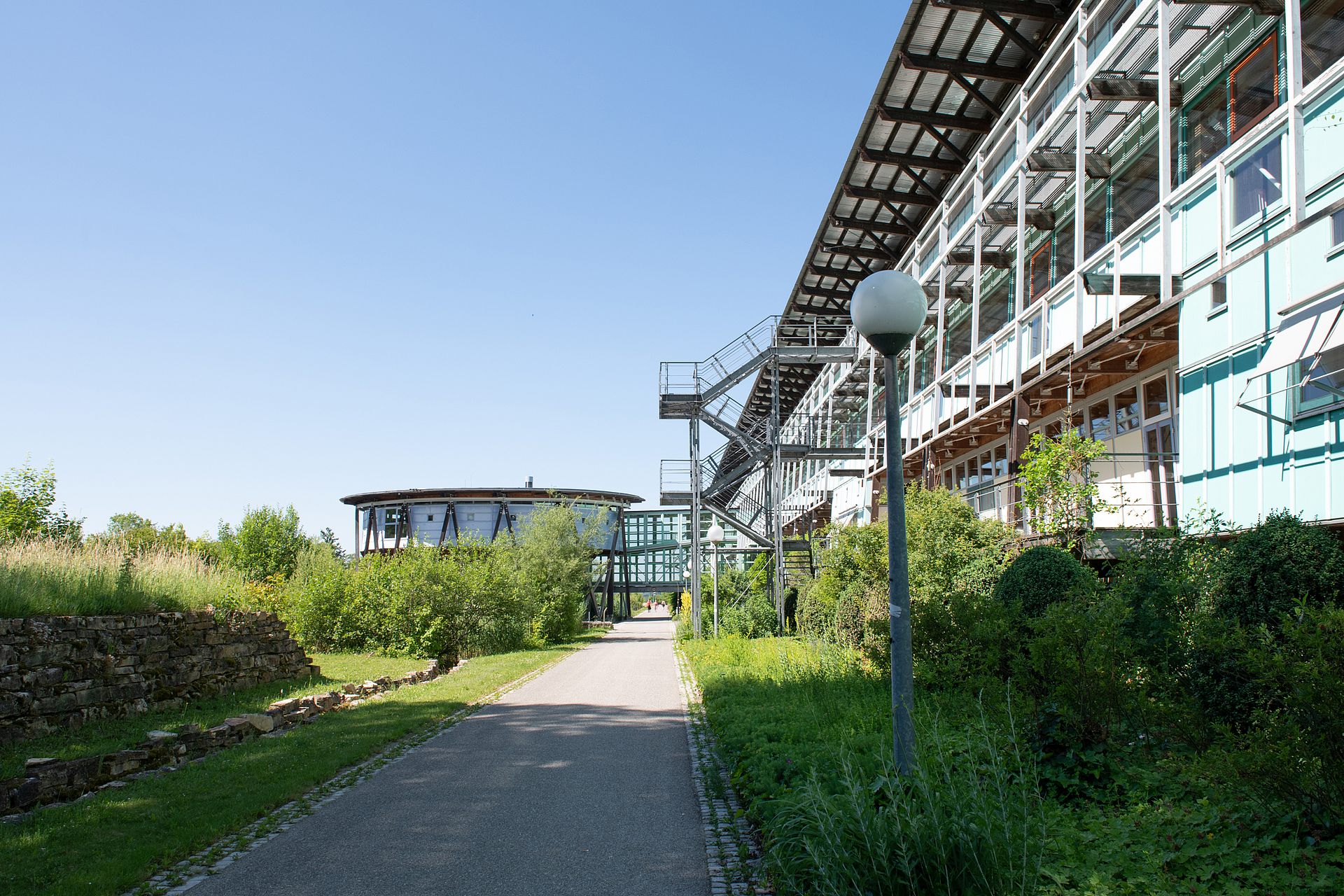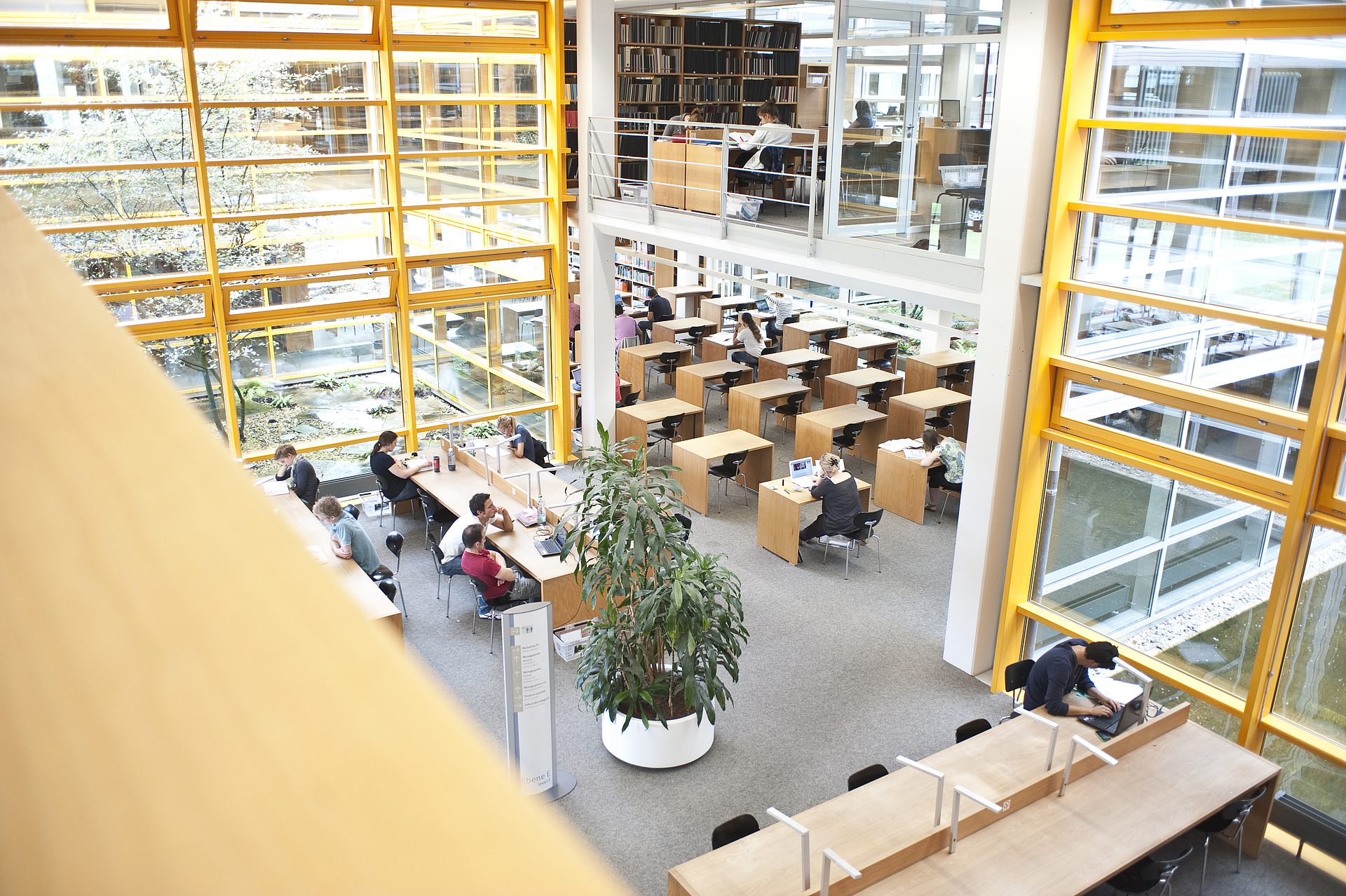
Bachelor of Science (BSc)
Psychology
More about the course
Psychology, being the science about human experience and behaviour, tries to explain and unterstand these. Different aspects are studied, depending on the subject.
Whether it is in education, clinics or organisations – psychology also has the purpose of developing models and recommendations to improve the well-being and potential of humans on an individual and societal level.
In honour of the tradition of science at Ulm University, this Bachelor's programme in Psychology is not only practice-relevant but also research-oriented and enables graduates to think and work scientifically.
Because of the new law concerning the education to become a therapist (Psychotherapeutengesetz, PsychThG) the B.Sc. Psychology as well as the M.Sc. Psychology are being modified. Please click here for further information on this topic.
Bachelor of Science (BSc)
- Full-time
- each winter semester
137
- German and English
- Restricted (for further information see 'Application')
180
6
Ulm University was recognised as the TOP university in Germany in the StudyCHECK ranking of the most popular universities in 2025.
Programme structure in the B.Sc. in Psychology
Here you can see how the psychology degree programme is roughly structured over the semesters.
Psychology at the University of Ulm - research, learning, design
The Psychology degree programmes at Ulm University have a strong focus on research. From as early as the third semester, you will be involved in exciting research projects and work together with scientists. Small group sizes, innovative teaching methods and close supervision by lecturers create a degree programme that is not only instructive but also motivating. The degree programme imparts sound specialist knowledge combined with methodological and practical skills. You will be enabled to think and work in a scientific manner - skills that you can use successfully in both academia and practice. In addition, co-operation with regional clinics and industrial partners open up a wide range of opportunities for internships and research work outside the University.
Aim and structure of the programme
The aim of the programme is to provide you with basic knowledge of the subject of Psychology as well as interdisciplinary skills that will qualify you for a subsequent Master's degree or entry into the professional fields of Psychology. In addition to theoretical fundamentals and empirical methods, the programme focuses on practical application. Interdisciplinary skills complement the specialised training, giving graduates a wide range of career prospects. The study/degree programme generally comprises six semesters (180 CP) and is divided into three areas:
Introduction/Methods/Diagnostics: Basics of Psychology, scientific methods, and diagnostics. Methodology is supported by tutorials and exercises.
Fundamentals: Subjects such as General Psychology, Biological Psychology, Developmental Psychology, and Social Psychology provide basic knowledge about human experience and behaviour.
Application: Applied subjects such as Industrial, Organisational and Engineering Psychology, Disorders and Process Theory, and Pedagogy show how the theories taught can be applied in practice.
In addition, students complete practical work placements, a non-psychological additive subject, and finish the programme with a Bachelor's thesis.
Applied subjects in the Bachelor's programme
The subject Work, Organisational and Engineering Psychology explores the interrelationships between human experience and behaviour and working and organisational conditions. It aims, for example, to optimise the fit between the individual and the working conditions.
The subject of Abnormal Psychology: The Science and Treatment of Mental Disorders deals with the development, diagnosis and treatment of mental disorders. In addition to the theoretical fundamentals, methods and systems for diagnosis and classification, methods of prevention, therapy and rehabilitation of mental disorders are also taught.
The subject of Educational Psychology and Educational Science deals with processes of teaching and learning and the corresponding scientific models. It aims, for example, to implement interventions to optimise teaching and learning processes in practice.
Admission
Information on admission can be found on the pages of the Admissions Office. Questions about admission will be answered by the relevant contact person at the Admissions Office.
Important information for applicants:
Ulm University includes the BaPsy DGPs aptitude test in the admission procedure for the Bachelor's degree in Psychology and strongly recommends that applicants take it. Information on the procedure at Ulm University can be found here. All current information on registration and the aptitude test itself can be found on the website https://studieneignungstest-psychologie.
Accreditation and professional recognition
The polyvalent B.Sc. in Psychology fulfils the professional requirements of the Psychotherapists Act and the Licensing Regulations when certain compulsory elective modules are selected and is recognised under professional law. A subsequent Master's programme with a focus on "Clinical Psychology and Psychotherapy" is therefore possible. The degree programme has been accredited since 2016 and has carried the quality seal of the German Society for Psychology (DGPs) since 2018.
Sophisticated laboratory equipment is used in the majority of research projects at the University of Ulm.
Research at Ulm University - Focus on technology and health
The two major research focuses at the Institute of Psychology and Education are in the areas of People and Technology and People and Health. In both areas, several departments develop innovative approaches to empirically investigate central questions of Psychology supported by state-of-the-art laboratory equipment.
The focus area "People and Technology" is concerned with the goal of developing interaction concepts that are adapted to human abilities and limitations, for example through display design. As the subject of Psychology is embedded in the Faculty of Engineering, Computer Science and Psychology, researchers benefit from close cooperation within the faculty.
In the area of "People and Health", determinants and consequences of health, aspects of health change and the fundamentals of mental disorders are being researched in several projects. In addition to therapeutic services, scientific studies are also carried out in the Psychotherapeutic Outpatient Clinic.
Click here for the departments of the institute and their research focus.
Paths abroad
An excellent way to broaden your horizons is to study at a foreign university. Students at Ulm University can apply for one or two semesters abroad at numerous universities, both throughout Europe as part of the ERASMUS programme and outside Europe. If lectures are not required, internships and theses at other universities are also possible. Ulm University has exchange agreements with over 100 universities in 26 countries.
In the bachelor's programme in Psychology, the 5th semester is particularly suitable for a stay abroad. The ERASMUS subject coordinator for Psychology is the chair of the Psychology subject examination board (international.psychology(at)uni-ulm.de).


Most of the courses in the Psychology degree programme take place at the University West.
(Source: University of Ulm)
Panoramic view of the University West.
(Source: University of Ulm)

Library of Ulm University.
(Source: University of Ulm)
Studying at the University of Ulm - Info film
Graduation ceremony 2024 on Münsterplatz
Impressions of the city of Ulm and the University.
And afterwards? Career opportunities and fields of activity with a Bachelor's degree in Psychology
The bachelor's programme qualifies students for routine psychological activities as well as independent tasks that are usually legally accountable to psychologists or psychology graduates. As the standard degree in Psychology is a Master's degree, a full professional qualification is only obtained after a consecutive Master's programme.
The fields of activity for Psychology graduates are diverse:
Occupational and Organisational Psychology, e.g.: aptitude diagnostics, personnel selection and development, work design
Clinical Psychology, e.g.: diagnostics, counselling, health promotion and prevention
Pedagogy, e.g.: diagnosis and treatment of learning disorders, educational counselling, adult education
For some occupations (such as psychotherapy), legally regulated further education is required; for many other areas, additional qualifications are recommended.
Studying and living in Ulm
Welcome to the most liveable city in Germany. In Albert Einstein's birthplace, scientific research, leisure, top employers and culture come together in a unique way. Top locations and events such as the Ulmer Zelt, Nabada or the Donaufest attract visitors to the quaint streets. Here, you'll feel at home!
Copyright: City of Ulm
Living and housing in Ulm
Last step: If you can answer many of these questions positively, the Bachelor's degree programme in Psychology could be your dream degree programme!
- Are you enthusiastic about topics relating to human experience and behaviour?
- Would you like to develop innovative approaches and work on practical solutions to improve people's health and well-being?
- Do you have a basic understanding of statistics and scientific methods and enjoy applying these in your psychology degree programme?
- Are you fascinated by the possibility of combining psychology with medicine, engineering or computer science in an interdisciplinary environment?
- Would you like to have a wide range of career opportunities following your studies?
Are there any questions left? To the study counselling service

